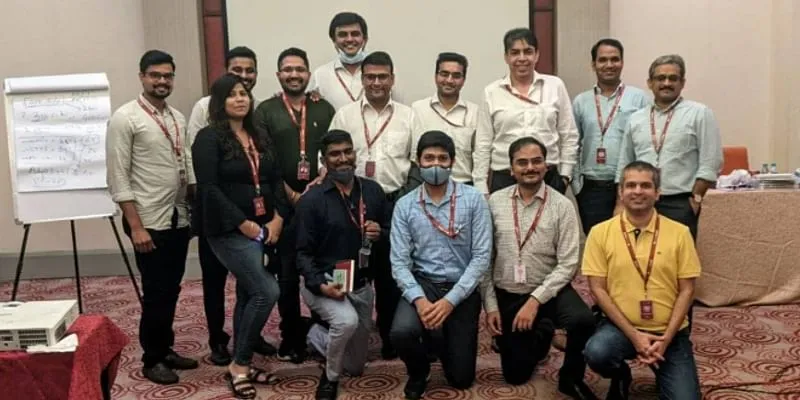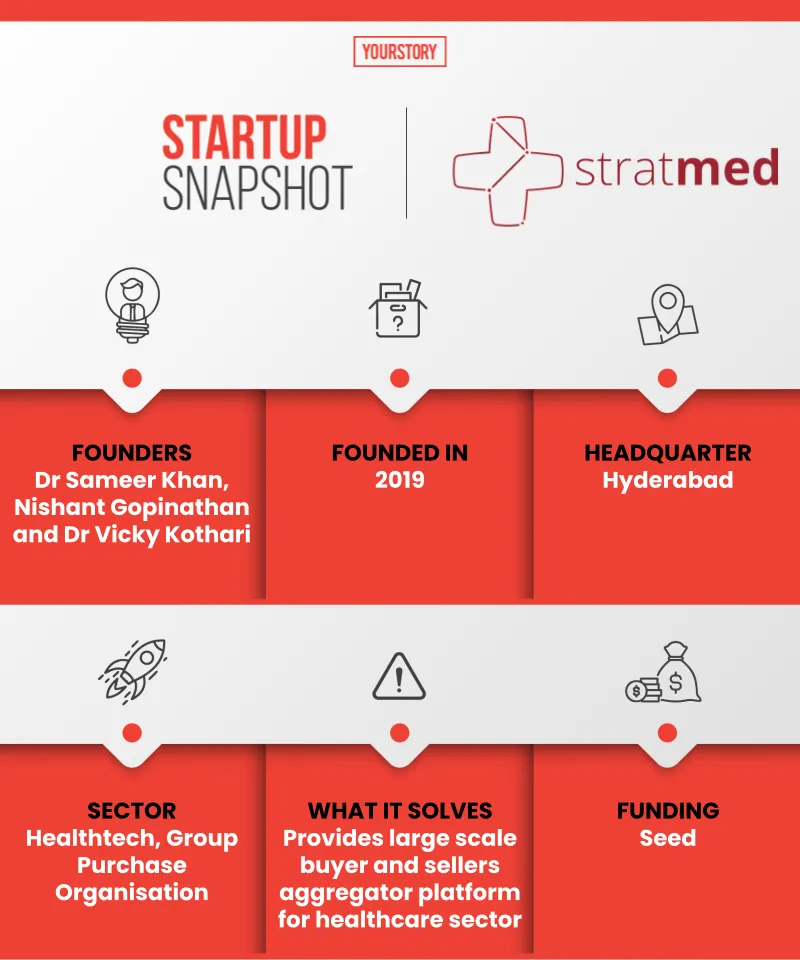
The COVID-19 pandemic has helped us identify the gaps in the Indian healthcare system, especially in the supply-chain infrastructure space.
Hyderabad-based health group purchase orgnisation StratMed is looking to solve this problem by building a large-scale supplier and buyer aggregation platform. Founded in 2019 by Dr Sameer Ahmed Khan, Nishant Gopinathan, and Dr Vicky Kothari, StratMed aggregates industry demand and helps hospitals and clinics connect with the right manufacturers and negotiate preferred prices.
Speaking with YourStory, Dr Sameer, Co-founder and CEO, says,
“We started StratMed with a single focus to see how we can consolidate the demand side and bring down the cost of the products. We are a group purchase organisation aimed at reducing the cost of acquiring materials by working on the entire purchasing process using technology.”
He explains the group purchase organisations aggregate the demand and supply at a large scale, thereby bridging bring down purchasing costs.

Improving supply chain process
According to the CEO, StratMed offers a proprietary data-driven, systemic approach for consumption planning and spend management.
“The StratMed team has created one of the largest networks comprising of more than 50 hospitals and 300 pharma and medical device companies across 14 states and 29 cities in India. Today, StratMed is one of the largest data-driven healthcare performance improvement companies in India managing a total purchase value of Rs 1,000 crore,” he says.
Dr Sameer adds that in simple terms, StratMed connects hospitals and manufacturers for the purchase of medical supplies at reduced costs.
Amid pandemic, StratMed has set up a covid task force which coordinates with hospitals daily to understand their requirement and assist them with securing supplies.
The startup also helps the client hospitals in product optimisation by enabling efficient utilisation of the products and minimise wastage.
Dr Sameer says group purchasing organisations offer the advantage of bulk purchasing or procurement with better pricing, thereby resulting in improved margins.
“StratMed offers an exhaustive database of pharmaceuticals, implants, and consumables with over 0.5 million unique items entities (SKUs) with a rich set of over 15 attributes. We also provide near real-time integration with the purchase and inventory receipt for automated alerts for non-compliance to rate contracts,” he adds.

Business and more
Speaking about the business model, Dr Sameer explains the startup charges hospitals a percentage of the savings that the hospital makes upon purchasing via StratMed.
“For example, if we help a hospital save Rs 100, then we charge a percentage of that savings. For the manufacturers, we charge a transactional fee,” he adds.
The co-founder explained that the startup is aimed at increasing its handled purchase value from Rs 1,000 crore to about Rs 3,000 crore by end of the current fiscal and is looking to clock in Rs 40 crore as net revenue.
StratMed is working with several hospitals across the country, including Cloudnine Hospitals, Kerala Institute Medical Sciences, Dr Agarwal’s Eye Hospital, and Meditrina Hospital, among others.
“We received seed funding from HNIs. We are looking for growth capital funding to expand into new territories, acquire new customers, and further enhance our proprietary healthcare spend analytics platform,” Dr Sameer adds.
GPOs are still a new concept in India. Globally, StratMed competes with notable players such as Premier Inc, MedAssets, Cardinal Health, and Intalere among others.
Speaking about future plans, he explains that StratMed is looking to expand its footprint in the UAE by the end of this year.
https://yourstory.com/2021/05/startup-bringing-down-supply-chain-costs-healthcare/amp
<iframe src=”https://yourstory.com/2021/05/startup-bringing-down-supply-chain-costs-healthcare/amp”></iframe>

